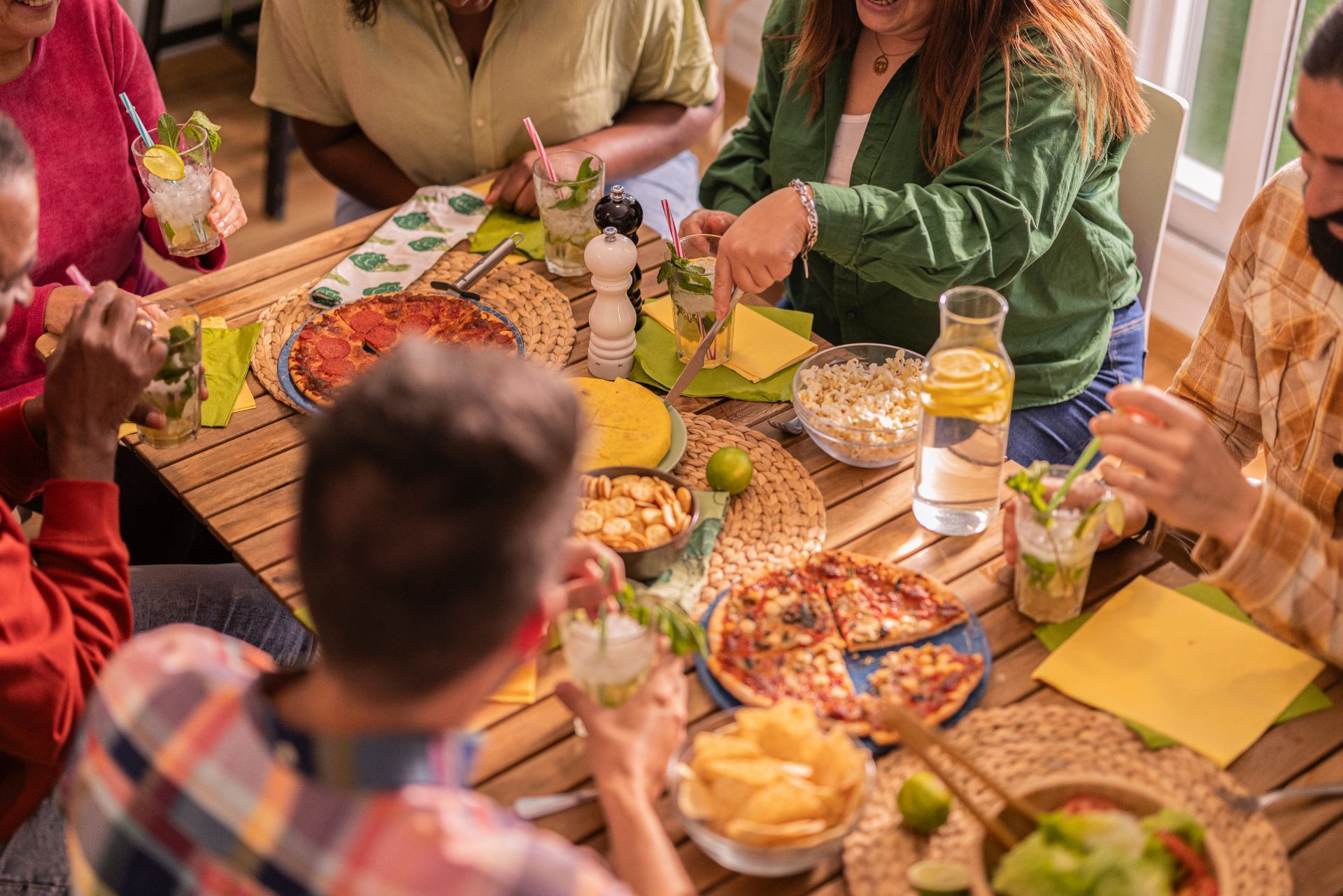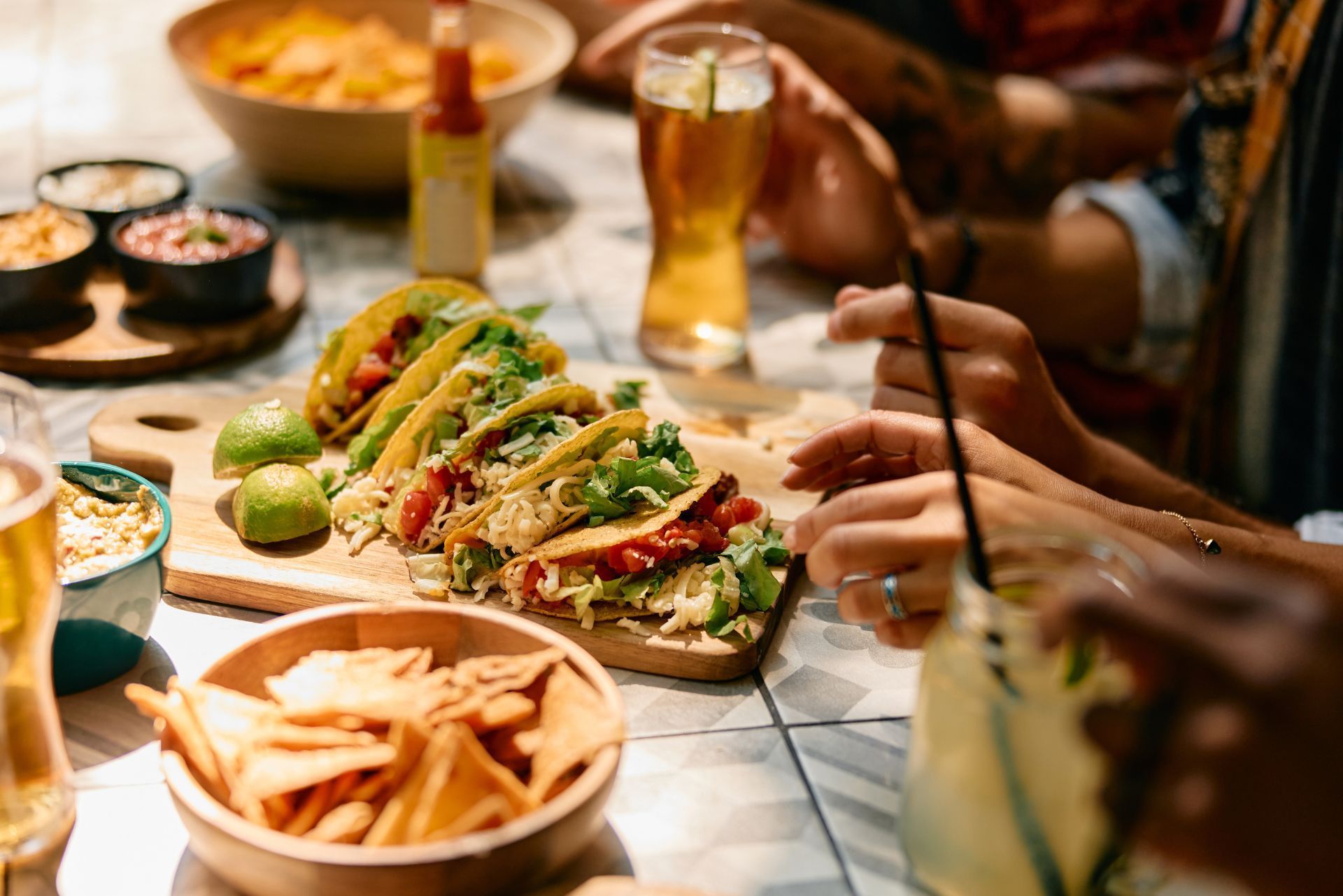Top 3 Recommended Policies

Operating a Mexican restaurant in Colorado offers a vibrant opportunity to serve delicious cuisine in a state known for its dynamic dining scene. However, with over 14,400 restaurants statewide, Colorado ranks 5th nationally in restaurants per capita, creating a competitive and complex environment for restaurateurs (Colorado Restaurant Association). Amidst this bustling market, securing the right insurance coverage is essential to protect your business, employees, and customers from the unique risks that come with running a restaurant.
This guide dives deep into everything you need to know about insurance for Mexican restaurants in Colorado, covering key types of coverage, industry challenges, and actionable tips to manage costs effectively.
The Importance of Specialized Insurance for Mexican Restaurants in Colorado
Restaurants, including Mexican eateries, face a variety of risks ranging from property damage and liability claims to employee injuries. In Colorado, where the restaurant industry employs over 303,000 individuals—accounting for 11% of the state’s labor force—these risks are amplified by the sheer volume of businesses and workforce involved (Colorado Restaurant Association).
Mexican restaurants often have unique operational aspects such as open flames, deep fryers, and extensive food preparation areas that increase the likelihood of accidents or property damage. Insurance tailored to these hazards is crucial to ensure your business can recover quickly from unexpected setbacks.
Moreover, the recent wave of restaurant closures in Colorado—over 200 in 2024 alone, with Denver accounting for 82%—highlights the precarious nature of the industry and the need for comprehensive risk management strategies (Axios Denver).
In addition to the physical risks associated with food preparation and service, Mexican restaurants must also navigate the complexities of food safety regulations and health inspections. A single violation can lead to hefty fines or even temporary closures, making it imperative for restaurant owners to stay informed and compliant. Specialized insurance can help mitigate the financial impact of such incidents, providing coverage for legal fees and penalties that may arise from health code violations.
Furthermore, with the rise of food delivery services and online ordering, Mexican restaurants are increasingly exposed to new liabilities. Issues such as food tampering during delivery or accidents involving delivery personnel can pose significant risks. Having
specialized insurance that covers these modern challenges ensures that restaurant owners are protected against potential claims, allowing them to focus on serving delicious meals and creating a vibrant dining experience for their customers.

Key Types of Insurance Coverage for Mexican Restaurants
General Liability Insurance
This is the cornerstone of any restaurant’s insurance portfolio. General liability protects your business from claims related to bodily injury, property damage, or advertising mistakes. For example, if a customer slips on a wet floor or suffers food poisoning, this coverage helps cover legal fees and settlements. Additionally, it can safeguard your restaurant against claims related to defamation or copyright infringement, which can arise from marketing materials or social media posts. In an age where online reviews can make or break a business, having this insurance is crucial for maintaining your restaurant's reputation.
Property Insurance
Property insurance covers damage to your restaurant’s physical assets, including the building, kitchen equipment, and inventory. Given Colorado’s susceptibility to weather challenges and the state’s high homeowners insurance premiums—averaging $1,640 annually, 35% higher than the national average—property insurance is especially vital (The Journal). Furthermore, this insurance can also cover loss due to theft or vandalism, which is increasingly important in urban areas where crime rates may be higher. By ensuring your property is adequately covered, you can focus on serving delicious cuisine instead of worrying about potential financial setbacks from unforeseen events.
Workers’ Compensation Insurance
With labor costs comprising 36.5% of total sales for typical restaurants, including wages and employee benefits, protecting your workforce is both a legal requirement and a financial necessity (National Restaurant Association). Workers’ compensation insurance covers medical expenses and lost wages if an employee is injured on the job. This coverage not only helps employees recover but also fosters a positive work environment, as staff members feel valued and protected. Additionally, Colorado restaurants can benefit from customized safety plans that reduce workers’ compensation costs by addressing specific risk factors, as highlighted by experts at the Leavitt Group of Colorado (Leavitt Group of Colorado). Implementing training programs and safety protocols can further mitigate risks and enhance overall workplace safety.
Business Interruption Insurance
This coverage helps replace lost income if your restaurant must close temporarily due to a covered event, such as a fire or natural disaster. Considering the recent industry challenges, this insurance can be a financial lifesaver during unexpected closures. It can also cover ongoing expenses, such as rent and utilities, ensuring that your restaurant can maintain its financial obligations even when revenue is halted. In a competitive market, having this safety net allows business owners to focus on recovery and rebuilding rather than immediate financial distress.
Liquor Liability Insurance
If your Mexican restaurant serves alcohol, liquor liability insurance is essential to protect against claims arising from intoxicated patrons who cause injury or damage. This coverage can also extend to incidents involving underage drinking, which can have severe legal ramifications. Additionally, many insurance providers offer risk management resources to help restaurant owners implement responsible alcohol service practices, further reducing the likelihood of incidents and claims. By prioritizing liquor liability insurance, you not only protect your business but also contribute to a safer dining environment for all patrons.
Challenges Facing Colorado Mexican Restaurants and Their Insurance Needs
Colorado’s restaurant industry is currently navigating a “perfect storm” of challenges, including rising costs, labor shortages, and increased competition, as noted by CRA spokesperson Denise Mickelsen (Axios Denver).
These pressures have contributed to a wave of closures, particularly in Denver, where 82% of the state’s 200+ restaurant shutdowns in 2024 occurred. This environment makes it more important than ever for Mexican restaurant owners to have robust insurance coverage that can help absorb shocks and protect their investments.
Additionally, labor costs—which include wages, health insurance, and other benefits—make up a significant portion of restaurant expenses. Managing these costs while maintaining adequate workers’ compensation coverage requires strategic planning.
Moreover, the unique cultural offerings of Mexican cuisine can often lead to heightened expectations from customers, which adds another layer of complexity. Restaurant owners must not only provide authentic dishes but also create an inviting atmosphere that resonates with patrons. This commitment to quality can strain resources, especially when coupled with the need for compliance with health and safety regulations. As a result, many establishments are finding that they need specialized insurance products that cater specifically to the nuances of their operations, such as coverage for food spoilage or liquor liability.
Furthermore, the rise of food delivery services and online ordering has transformed the landscape of dining, compelling Mexican restaurants to adapt quickly. While these services can expand customer reach, they also introduce new risks, such as delivery-related accidents and increased liability. Consequently, restaurant owners must reassess their insurance policies to ensure they are adequately covered for these evolving business models, which may include additional coverage for delivery drivers or cyber liability insurance to protect against data breaches in online transactions.

How to Manage Insurance Costs Without Sacrificing Coverage
Insurance premiums in Colorado can be higher than in other states, partly due to elevated property insurance rates and the competitive restaurant market. However, there are ways to optimize your coverage and reduce costs:
- Implement Safety Programs: Customized safety plans, such as those offered by the Leavitt Group of Colorado, can lower your experience modifier and reduce workers’ compensation premiums.
- Bundle Policies: Combining general liability, property, and other coverages into a package policy often results in discounts.
- Regularly Review Coverage: Ensure your policy limits and deductibles align with your current risk profile and business size.
- Invest in Employee Training: Well-trained staff are less likely to cause accidents or food safety issues, which can reduce claims.
By taking these steps, Mexican restaurant owners can maintain comprehensive protection while managing their bottom line effectively. Additionally, it’s essential to stay informed about the latest trends in the insurance industry. For instance, many insurers are now offering incentives for businesses that adopt green practices or sustainable operations. This not only helps in reducing premiums but also aligns with a growing consumer preference for environmentally responsible businesses. Implementing energy-efficient appliances or waste reduction programs can not only enhance your restaurant's reputation but also potentially qualify you for further discounts on your insurance premiums.
Moreover, leveraging technology can play a significant role in managing insurance costs. Many modern point-of-sale systems come equipped with analytics tools that can help identify patterns in sales and customer behavior, which can inform risk assessments and insurance needs. By understanding peak hours, popular menu items, and customer demographics, restaurant owners can better tailor their coverage to reflect actual business operations, ensuring they are neither over-insured nor under-insured. This proactive approach can lead to more accurate premiums and a more robust understanding of the risks associated with running a restaurant in today’s dynamic market.
Why Choosing the Right Insurance Partner Matters
Given the complexities of the Colorado restaurant market and the specific risks associated with Mexican cuisine operations, working with an insurance provider experienced in this niche is invaluable. Providers who understand the local regulatory environment and industry trends can tailor policies that address your unique needs. For instance, they can help navigate the intricacies of food safety regulations, liquor licensing, and employee liability, ensuring that your establishment remains compliant while minimizing potential risks.
The Colorado Insurance Industry Statistical Report offers insights into market shares and financial health of insurers operating in the state, which can guide restaurant owners in selecting reputable companies (Colorado Division of Insurance). By analyzing this report, restaurant owners can identify insurers with a strong track record in the food service sector, allowing them to make informed decisions that align with their operational goals. Additionally, understanding the financial stability of these insurers can provide peace of mind, knowing that they will be able to fulfill claims in times of need.
Choosing a knowledgeable insurance partner ensures you receive proactive risk management advice, competitive pricing, and responsive claims support—critical factors that can make a difference when facing industry uncertainties. A well-versed insurance provider can also offer valuable insights into emerging trends, such as the growing demand for sustainable practices in the restaurant industry. This knowledge can help you adapt your operations to not only meet customer expectations but also to potentially lower your insurance premiums through risk mitigation strategies. Furthermore, having a dedicated agent who understands your specific challenges can be an invaluable resource, providing ongoing support and guidance as your business evolves.
Conclusion: Protecting Your Mexican Restaurant’s Future in Colorado
Operating a Mexican restaurant in Colorado’s vibrant but challenging market requires more than culinary expertise—it demands strategic risk management through comprehensive insurance coverage. With over 303,000 individuals employed in the state's restaurant sector and intense competition driving closures, protecting your business assets, employees, and income streams is essential (Colorado Restaurant Association).
By understanding the various types of insurance available, managing costs through safety initiatives, and partnering with experienced providers, Mexican restaurant owners can navigate Colorado’s dynamic landscape with confidence. Staying informed and prepared is the best recipe for long-term success in this flavorful and fast-paced industry.
Contact Us
Phone
Location

